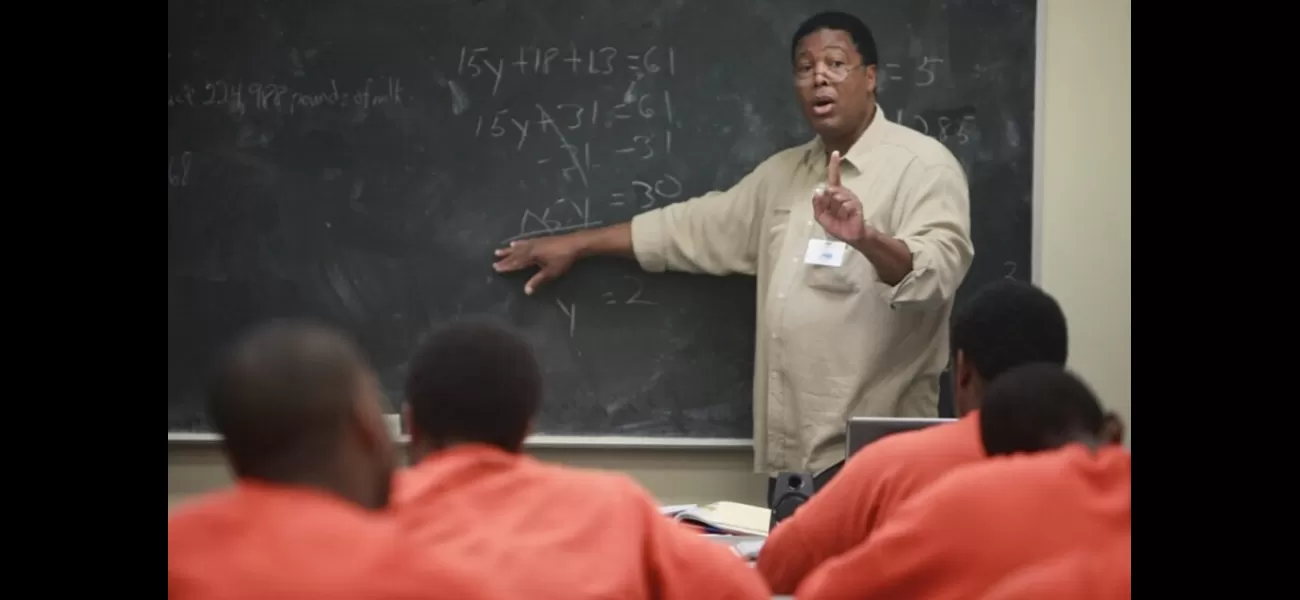Georgia State will no longer offer educational programs in prisons due to budget cuts.
"Perimeter College English professor Katherine Perry expressed disappointment over the program's end and its impact on incarcerated individuals."
March 28th 2024.

Officials at Georgia State University have announced that they will be closing their prison education program this summer. According to Provost Nicolle Parsons-Pollard, the decision was not an easy one, but was necessary due to budget constraints and a change in how Pell Grants are allocated. The university has been facing financial challenges, making it difficult to support new initiatives like the prison education program.
The university currently spends approximately $200,000 per year to keep the program running. However, with a $24 million budget decrease by the Georgia General Assembly and difficulties in securing federal financial aid, the program has become unsustainable. Despite this, the university has assured that students who are currently enrolled in the program will be allowed to complete their courses.
The decision to end the program has disappointed some faculty members, including Katherine Perry, an English professor at Perimeter College. Perry, who helped found the program in 2016, expressed her disappointment for the incarcerated individuals who will no longer have access to education. She believes that education should not be added to the list of letdowns in their lives.
Other experts, like Stacy Bell from Emory University, are worried about the implications of this closure on similar programs in the state. Georgia has the fourth largest prison system in the country and a large underserved population. Without the support of Georgia State University, it raises concerns about the future of higher education in prisons in the state.
In 2020, the ban on Pell Grants for incarcerated individuals was lifted, which led to an increase in prison education programs at universities like Georgia State. Kayla James from the Vera Institute of Justice believes that these programs need to prioritize racial equity in order to reach their full potential. She emphasizes the importance of considering the needs of all incarcerated individuals and providing them with equal opportunities to pursue a degree.
Sultana Shabazz from Tacoma Community College's Washington Corrections Center for Women agrees that it is crucial to use Pell Grants wisely for incarcerated students. She stresses the importance of discussing career goals with students to ensure that their education is focused and beneficial for their future post-incarceration.
Stanley Andrisse, a formerly incarcerated individual and now executive director of From Prison Cells to PhD, believes that racial equity should also be reflected in the leadership of these programs. He suggests that formerly incarcerated and currently incarcerated individuals should be involved in the decision-making process, especially since many incarcerated individuals are Black and brown and predominantly male. This representation will not only provide equal opportunities but also prevent any potential harm.
It is clear that the closure of Georgia State University's prison education program has raised concerns about the future of higher education in prisons in the state. However, experts and advocates are determined to address these issues and ensure that incarcerated individuals have the same access and opportunities as those on the outside.
The university currently spends approximately $200,000 per year to keep the program running. However, with a $24 million budget decrease by the Georgia General Assembly and difficulties in securing federal financial aid, the program has become unsustainable. Despite this, the university has assured that students who are currently enrolled in the program will be allowed to complete their courses.
The decision to end the program has disappointed some faculty members, including Katherine Perry, an English professor at Perimeter College. Perry, who helped found the program in 2016, expressed her disappointment for the incarcerated individuals who will no longer have access to education. She believes that education should not be added to the list of letdowns in their lives.
Other experts, like Stacy Bell from Emory University, are worried about the implications of this closure on similar programs in the state. Georgia has the fourth largest prison system in the country and a large underserved population. Without the support of Georgia State University, it raises concerns about the future of higher education in prisons in the state.
In 2020, the ban on Pell Grants for incarcerated individuals was lifted, which led to an increase in prison education programs at universities like Georgia State. Kayla James from the Vera Institute of Justice believes that these programs need to prioritize racial equity in order to reach their full potential. She emphasizes the importance of considering the needs of all incarcerated individuals and providing them with equal opportunities to pursue a degree.
Sultana Shabazz from Tacoma Community College's Washington Corrections Center for Women agrees that it is crucial to use Pell Grants wisely for incarcerated students. She stresses the importance of discussing career goals with students to ensure that their education is focused and beneficial for their future post-incarceration.
Stanley Andrisse, a formerly incarcerated individual and now executive director of From Prison Cells to PhD, believes that racial equity should also be reflected in the leadership of these programs. He suggests that formerly incarcerated and currently incarcerated individuals should be involved in the decision-making process, especially since many incarcerated individuals are Black and brown and predominantly male. This representation will not only provide equal opportunities but also prevent any potential harm.
It is clear that the closure of Georgia State University's prison education program has raised concerns about the future of higher education in prisons in the state. However, experts and advocates are determined to address these issues and ensure that incarcerated individuals have the same access and opportunities as those on the outside.
[This article has been trending online recently and has been generated with AI. Your feed is customized.]
[Generative AI is experimental.]
0
0
Submit Comment





